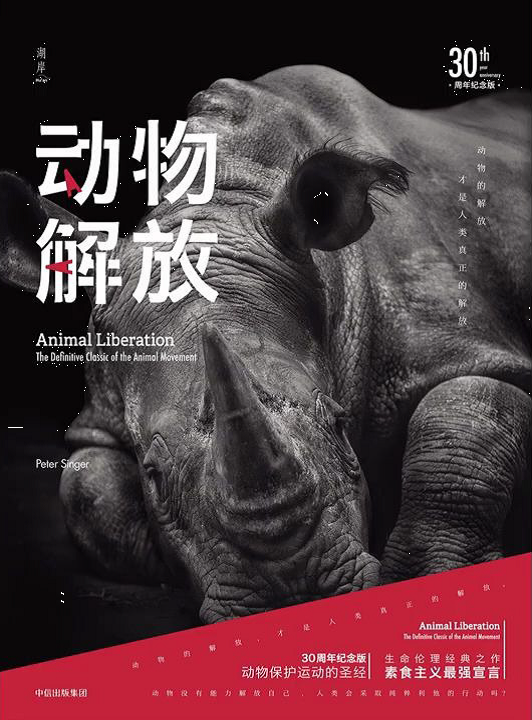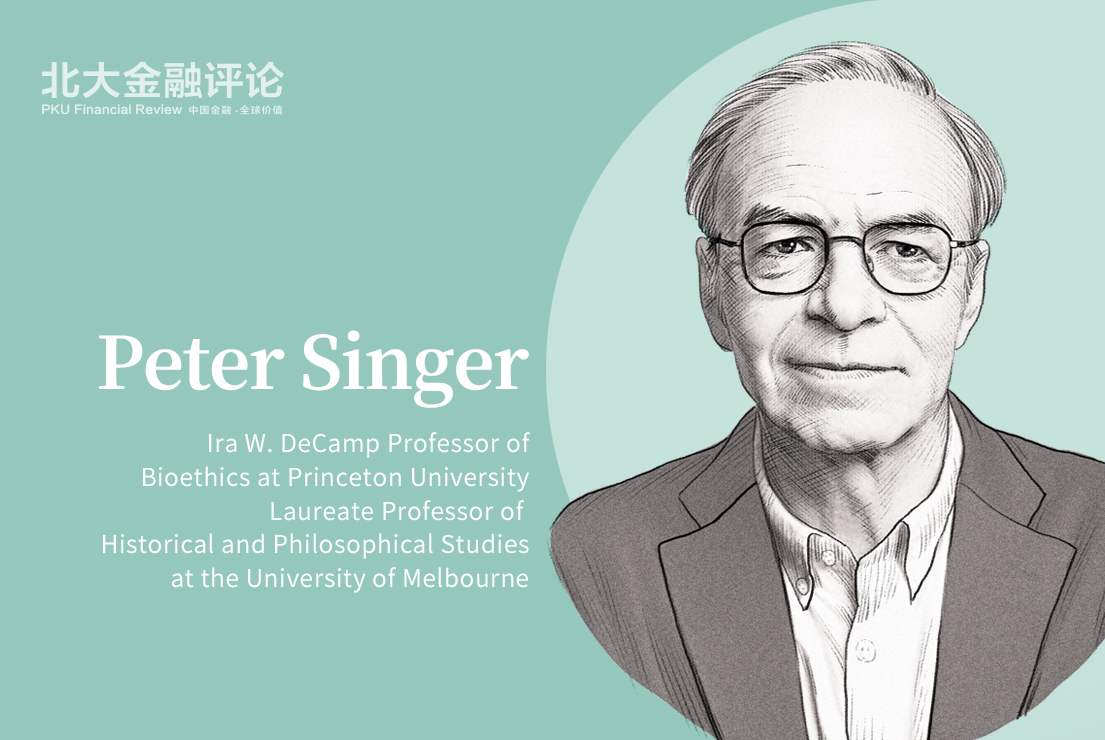Ira W. DeCamp Professor of Bioethics at Princeton University, Laureate Professor of Historical and Philosophical Studies at the University of Melbourne, Peter Singer is a moral philosopher and a preference utilitarian who specializes in practical ethics and animal liberation. In the interview with
PKU Financial Review, Peter Singer states that, Philosophers everywhere, not only in China, should focus on the most important ethical questions of our day: what are the obligations of the rich regarding the poor? How can we live ethically in relation to animals?
PKU Financial Review: In the Russian-Ukrainian war, you proposed to "calculate the suffering cost of the war, not only the suffering of human beings, but also the suffering of animals such as farmed animals". This is a natural derivation from your famous book "Animal Liberation". However, how to calculate this suffering if Using utilitarianism mood?
Peter Singer: If I may correct you on one point in your question, the natural derivation from my book “Animal Liberation” is to be concerned with the suffering of all animals capable of suffering, not just cats and dogs. In fact, the vast majority of the suffering we inflict on animals is inflicted on farmed animals, nearly all of whom today are reared in factory farms. So in ‘Animal Liberation’ I focus on pigs, cows and chickens much more than on cats and dogs.
It is difficult enough to compare the suffering of two human beings. I don’t even know if my wife feels as much pain when she is stung by a bee as I do when the same thing happens to me. It is, of course, even more difficult to compare the suffering of different species. Sometimes, though it seems quite obvious that we are causing great suffering to animals for minor benefits to ourselves. This is true of factory farming, and on a huge scale – we are causing billions of animals to have miserable lives in condition completely unsuited to their nature, only in order to please our palates. We could instead eat healthy and delicious foods made from plants, as Chinese people have been doing for hundreds of years with vegetables, tofu, mushrooms and many other plant-based foods. This is also a more efficient way of producing food – it requires less land to produce an equivalent amount of food, and is less wasteful of the food crops we produce and of our scarce resources of arable land. There is also less risk of causing new zoonotic diseases to spread among humans.
My main point, though, is that people do take the suffering of nonhuman animals into account, instead of ignoring it, as happens so frequently with animals.
PKU Financial Review: The slogan of the new Chinese government is: "common prosperity" and "three distributions". The market mechanism determines the first distribution, the tax system determines the second distribution, and encouraging the rich to donate to the poor is the third distribution. According to your theory, the third distribution is effective altruism?
Peter Singer: Ideally, this third distribution would be effective altruism, but whether it really is will depend on whether the rich use evidence and reasoning to find the most effective ways of helping the poor. For example, if rich people living in a wealthy country give only to people in their own country, their donations are not likely to do as much good as if they give to poor people in a low-income country. That’s because poor people in a middle income or high income country are still likely to have a much higher income than poor people in a low-income country, especially those who are below the World Bank’s “extreme poverty” line of approximately USD$2 per day. In the US, for example, people who are poor get financial assistance to buy food that is already worth more than $2 per day, and can get free health care, send their children to schools that are free, and have safe drinking water. Poor people in low-income countries may not have any of those benefits. Rich people in the US will therefore do more good with their donations if they give them to
effective organizations helping people in low-income countries. (A selection of such charities can be found at
www.thelifeyoucansave.org).
In China, the number of people in extreme poverty has fallen sharply, but there may still be some at that level, and if so, assisting them could be a form of effective altruism. But if not, then it would be more effective for rich Chinese to give to international organizations helping people in extreme poverty in low-income countries, or to other causes that offer highly cost-effective ways of reducing suffering.
PKU Financial Review: You have a criticism of groups of philosophers who are too concerned with the concerns of their peers than with the concerns of the majority. What do you think philosophers in China should focus on most?
Peter Singer: Philosophers everywhere, not only in China, should focus on the most important ethical questions of our day. We have already talked about some of them: what are the obligations of the rich regarding the poor? How can we live ethically in relation to animals? Acting to prevent catastrophic climate change is of crucial importance, and raises questions about our obligations to future generations, and what is an ethical allocation of emissions between different countries with different needs and different histories of past emissions.
There are also important issues about the role that artificial intelligence (AI) should play in our lives. Can it be used for good, without causing harm? And here too, when we think of “harm” we should be thinking not only of harm to humans, but also of harm to nonhuman animals. Already, AI is being used in factory farming in China, where it may make the exploitation of animal even more efficient and hence more difficult to replace with more humane alternatives.
 * This article was initially published in PKU Financial Review.
* This article was initially published in PKU Financial Review.
















